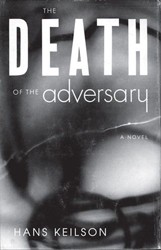Once an instructor at the University of Cracow, the Pawnbroker was plucked from his position with the United Jewish Appeal in Paris following his liberation from Bergen-Belsen to learn Shylock’s trade in America, and conscripted into the service of a faceless Harlem overlord. Operating the pawnshop as a front for he cares not what, Sol Nazerman regards his urban clientele — the destitute, the desperate, the dishonest — and associates without pity or interest. His sole assistant, Jesus Ortiz, scrabbles to learn the business over Nazerman’s unyielding shoulder, learning only the Pawnbroker’s bitter history lessons of Jews and money, pawning back to Babylon, trusting only cold, hard cash, rolling up their sleeves in the city heat to reveal the crude numbers on their arms they wave as credentials to one another in the thick of their darkest disputes.
Arguably one of the greatest fiction treatments of Holocaust survivors ever written, The Pawnbroker was the second of Edward Lewis Wallant’s two novels published in his lifetime. Originally issued in 1961, the book was quickly adapted into “the first stubbornly ‘Jewish’ film about the Holocaust” starring Rod Steiger, Brock Peters, and Morgan Freeman — though Wallant did not live to see its release or wide acclaim. The novel and its adaptation stand alone in their shared shrewd accuracy in the portrayal of posttraumatic stress of Holocaust survivors ensconced in the suburban households of patchwork families, interrace relations and relationships in Harlem of the late 1950s, and the inescapable stain of evil in which each and every antagonist, hero, victim, and determinedly dispassionate bystander are all complicit.
“Yes, you are about to read a masterpiece,” Dara Horn heralds in her introduction to this reissue of The Pawnbroker. One only wishes that a more compelling book cover had been designed for this reissue of a work so deserving of a strong revival.
Ultimately, however, Edward Lewis Wallant’s writing can stand on its own — as indelible as the blue ink on its protagonist’s arm.
Related Content:
- Steve Stern: Illusions and Remembering
- Joshua Henkin: Ask Big Questions: How Do You Recharge?
- Thane Rosenbaum: On Documenting Jewish Fiction Writers and How It Inspired a New Book
Nat Bernstein is the former Manager of Digital Content & Media, JBC Network Coordinator, and Contributing Editor at the Jewish Book Council and a graduate of Hampshire College.




